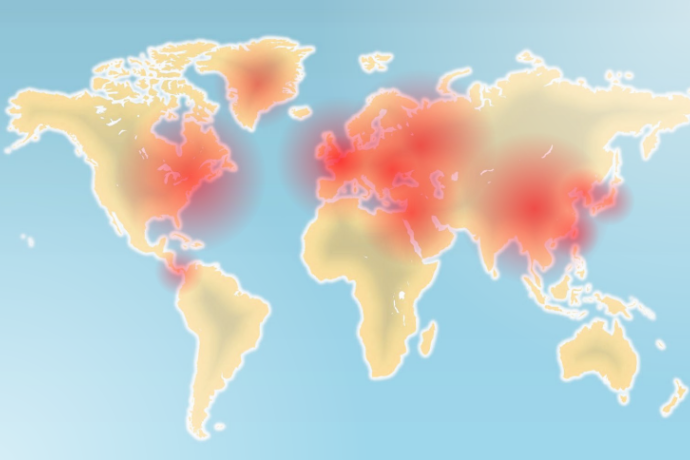Alaska and Trump’s false morality

The reality TV show called ‘Donald Trump, The Sequel’ continues apace. After the announcement of "Liberation Day" in early April, the world has now entered a new era of a near universal cold trade war, with America as the key instigator. The arbitrariness and the ego of the American president determine what passes for "reciprocity" in trade tariffs. Permanent last-minute deals, exceptions, adjustments, even unilateral changes by missive on Truth Social, are the reality that governments, companies, and investors must deal with. Meanwhile, a trade wall has been erected around America the likes of which we haven't seen since the infamous 1930s. We should hold our breath about the global domino effect this time around.
The next television episode will feature the meeting between Donald Trump and Russian President Vladimir Putin in Alaska. Ukraine is not at the table but it is definitely on the menu, to the alarm of Ukrainian and European leaders who have sought over and over to please and appease the Trump administration: with a natural resources deal, by bowing to new tariffs, through weapon purchases, with investment promises and by new NATO-spending commitments. Months of submission for the greater good of not being abandoned now hang in the balance.
The spectre of Donald Trump quickly clinching a superficial deal with Putin that would create a ‘fait accompli’ for everyone else sits uneasily against the backdrop of the new trade sanctions Trump threatened to unleash to punish a belligerent Russia. That, at least, was the public rhetoric behind the new tariff salvo against India: diplomatic punishment for purchasing the Russian oil that fuels the Kremlin's war machine. How is one to interpret this move in the wider ‘trade cold war’ that is our new reality?
These so-called "secondary tariffs" set an important new precedent. They demonstrate how America intends to use its economic and geopolitical clout to force countries to revise their bilateral trade relations with third countries in accordance with US political wishes. Trump previously did the same in negotiations with the United Kingdom, regarding British trade with China. This potentially escalates the global trade war, with smaller countries becoming playthings of the major powers. What America does, China will also do; countries will have to choose, and the world will inevitably slide toward trade blocs. That's possible. But we can also interpret Trump's move differently.
Less than six months ago, Trump seemed prepared to dump Ukraine in exchange for vague promises of hundreds of billions in trade and investment potential in Russia. Money over values, Russia over Europe, seemed to be the motto at the time. Meanwhile, the tide seems to have turned, not least because Ukraine and Europe themselves have pledged many hundreds of billions in raw materials, military purchases, and investments in America. Trump hasn't so much cultivated a moral backbone as bought off the threat of an American exit.
This is not so much a moral escalation of the trade war, but a negotiating tactic to extort even more business deals.
The new trade sanctions on India, an additional 25% import tariff on top of the existing tariffs, fit into the same picture. They are a threat with a deadline, pending a response. If India complies sufficiently, the US will be able to supply India with more oil. This will allow Trump to strengthen his goal of American energy dominance in the world's leading democratic growth economy. With the same tariff threat, Trump is targeting both India and Russia. If Putin does compromise, America might also benefit economically in Russia. This is not so much a moral escalation of the trade war, but a negotiating tactic to extort even more business deals. Alaska may yet prove this point.
It is also striking how Trump is focusing solely on India, while countries like China and Turkey are also major buyers of Russian oil. This is called false morality, or rather, cynical negotiating tactics. The entire trade war with China still hangs in the balance, with Trump seemingly appeasing China by striking bespoke corporate deals favouring Apple and Nvidia there. Turkey is a crucial military ally in Europe and the Middle East, and Erdogan en respected fellow strongman, one Trump seems not eager to provoke.
In the long run, India is the most important democratic counterweight to China in Asia and is therefore clearly a critical ally of the Free West. Trump doesn't care much about actual morality. But he cares about hard power. If Trump truly wants "America First," he must ensure that India develops alongside the US, both economically, geopolitically and militarily. Otherwise, China may well end up being the one to benefit. Alaska may yet punish Ukraine, while serving the US in both Russia and India. Europe will have to pick up the pieces.
English version of an op-ed published in German by Table.Media


